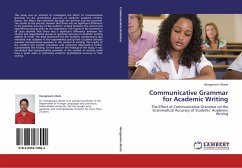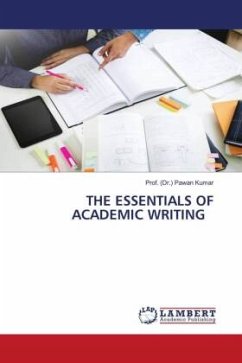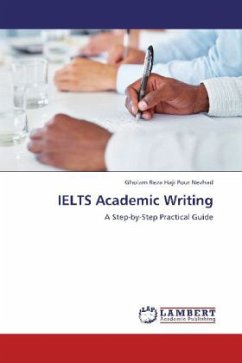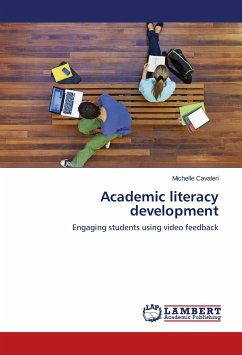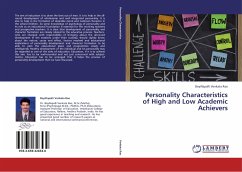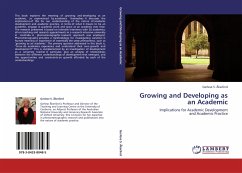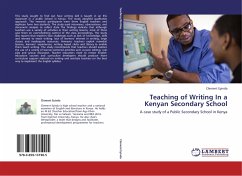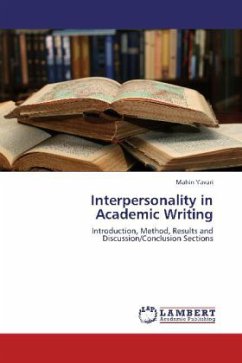
Interpersonality in Academic Writing
Introduction, Method, Results and Discussion/Conclusion Sections
Versandkostenfrei!
Versandfertig in 6-10 Tagen
39,99 €
inkl. MwSt.

PAYBACK Punkte
20 °P sammeln!
Today, there is no doubt that the communicative purposes of different sections of research reports (e.g. research articles) affect the degree of tentativeness, flexibility, and authorial engagement realized by various linguistic resources. Following this assumption, in the present book, writer tries to do a careful word by word and most importantly contextualized analysis of applied linguistics research articles in order to find out both the cross-sectional (i.e. Introduction-Methodology-Results-Discussion/Conclusion) and gender-based variations in the use of metadiscourse as a key tool for es...
Today, there is no doubt that the communicative purposes of different sections of research reports (e.g. research articles) affect the degree of tentativeness, flexibility, and authorial engagement realized by various linguistic resources. Following this assumption, in the present book, writer tries to do a careful word by word and most importantly contextualized analysis of applied linguistics research articles in order to find out both the cross-sectional (i.e. Introduction-Methodology-Results-Discussion/Conclusion) and gender-based variations in the use of metadiscourse as a key tool for establishing interpersonal relationships in academic writing. The findings of the study revealed that the authors utilized interpersonal features differently in the four rhetorical atmospheres of their texts. The book clearly shows that the differences in the discoursal functions of different sections of a research report play a significant role in writers fashioning of interactive and interactional features. No significant gender differences were found in the overall distribution of interpersonal resources in four sections of articles.




